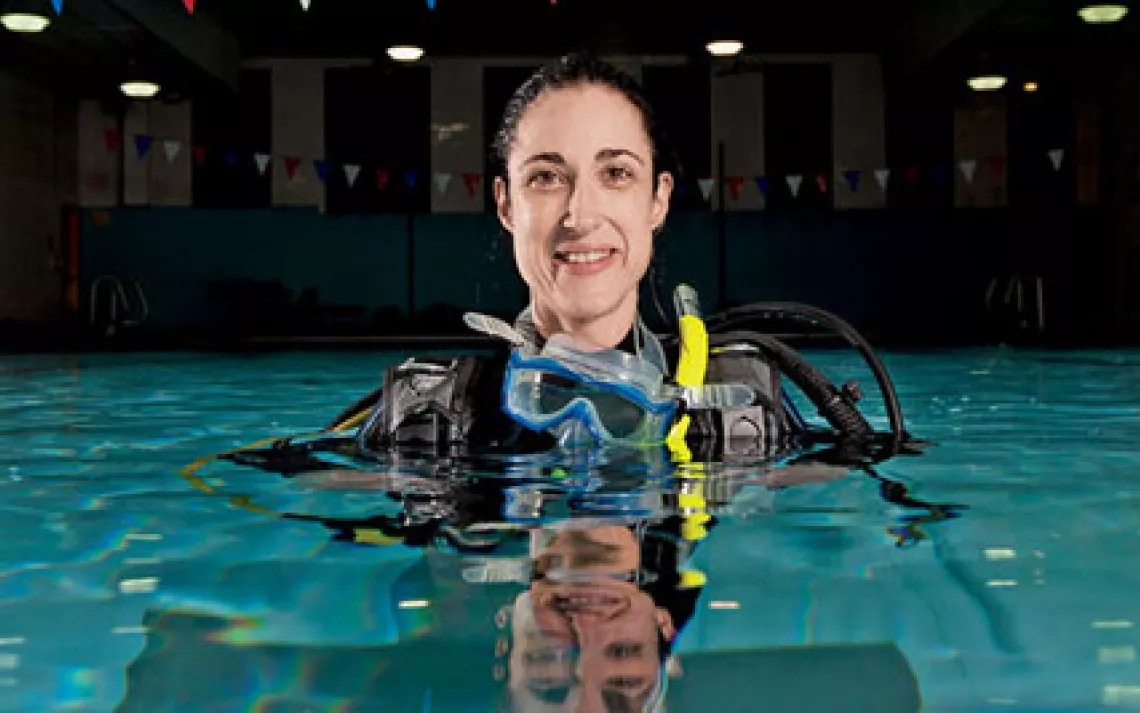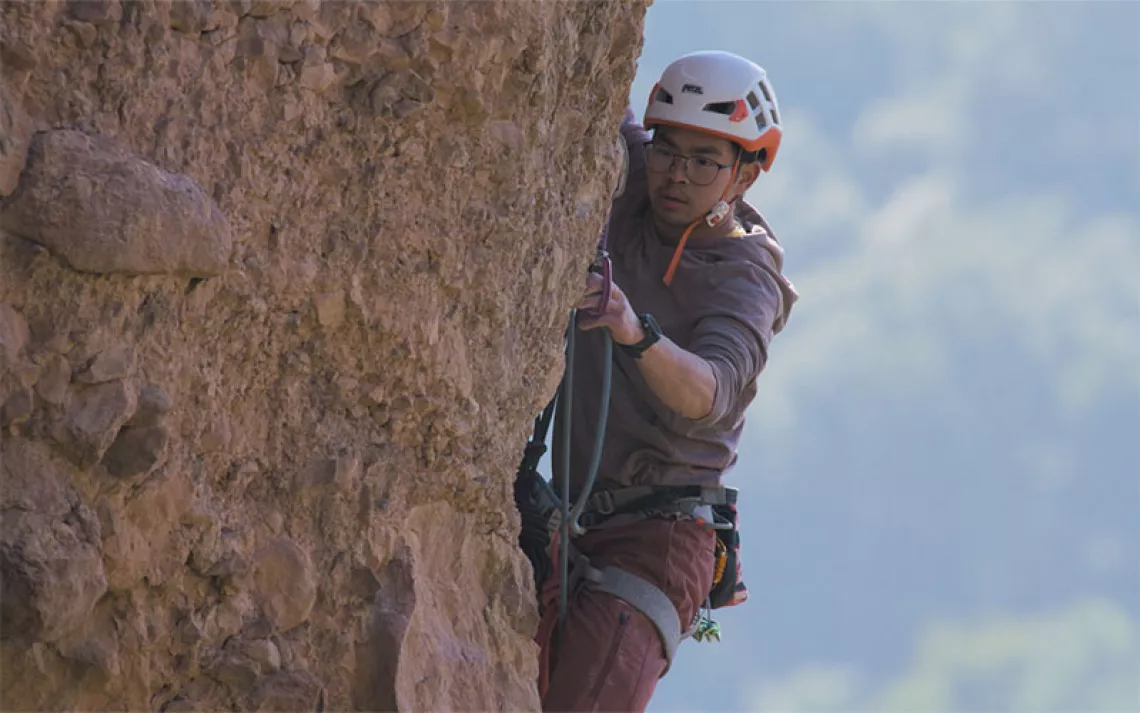Scuba Do-Gooder
Rx against street violence: scuba

Laura Medrano-Hernandez, Boston; Dive Kulture founder and director | Photo by Yoon S. Byun
"I'M FROM THE BASQUE COUNTRY IN SPAIN, and we have a terrorist group called ETA. Violence on the streets was pretty common when I was growing up—car bombings, kidnappings.
"Scuba diving for me was a life-changing experience. When I came out from my first dive, I was crying. I didn't want to leave. It's like when you see astronauts floating. The only thing you hear is the bubbles, your breathing. It's so relaxing. It's like being on the moon.
"Dive Kulture started because I was doing home-based therapy with underprivileged adolescents. These are kids who've been exposed to violence, been in cross fire. Everybody has had somebody close to them die on the streets. They don't trust anyone, and everything is, 'Whatever.' I thought I could give them something they like, so I could start building a relationship and, through that, work with them on other things.
"These kids don't go to beaches. A lot of them were never taught how to swim. For some, the first time they went to the ocean was to scuba dive. Some didn't even know the water was salty.
"Very few kids scuba dive, no matter what neighborhood they come from, so suddenly these guys feel special. They feel valued. Some are in college now. More than 20 kids who've been through the program now have lifelong diving certificates.

Sign up to receive Sierra News & Views
Get articles like this one sent directly to your inbox weekly.
With this action you affirm you want to receive Sierra Club communications and may vote on policy designated by the Sierra Club Board.
"We also run a marine biology curriculum over the summer where anybody from the community can learn about marine-related environmental topics. People here often work two or three jobs to pay rent. It's not on their priority list to learn about the environment.
"When I have a bad day, I look at a picture I have of one of the kids holding a lobster he'd caught and showing a big, big smile. He's just being a kid, and he doesn't get to do that very often. I think, 'Oh my god, this is why I am doing this, exactly because of this.'"
During the 2009 International Coastal Cleanup day, 14,116 volunteer divers retrieved more than 160 tons of underwater debris worldwide. A total of 1,126,774 plastic bags were collected by divers and shore-based volunteers.
 The Magazine of The Sierra Club
The Magazine of The Sierra Club



